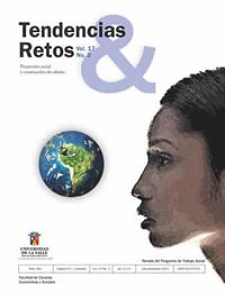Abstract
Solidary economy starts from social relations and production processes with interdependence between actors: institution, family and children. In this study we sought to determine the sustainability factors, from the paradigm of solidary economy, in a comprehensive technical-agricultural training institution for country children with some level of vulnerability or risk from displacement. This institution provides the basis of a process of social development with broader production structures in the community where the work is being carried out, and it was chosen as a case that exemplifies social dynamics in rural areas. The human capacities of the actors were taken into account on the one hand, and, on the other, the institutional capacity of financial selfsustainability for the period of 2000-2010, which makes it possible to identify the origin of resources and their allocation. As a result, it was found that the institution meets the social conditions but does not develop the model from the solidary economy approach, although it has enough grounds to do so. Therefore, it is necessary to evaluate, reorganize and restructure it.Downloads
Download data is not yet available.



